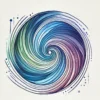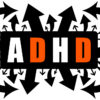A mood swing, as defined by Medical News Today, is “a sudden or intense change in emotional state.”
It is normal for your mood to shift in response to different situations, news, or challenges you encounter throughout a day. However, if you experience frequent and dramatic mood changes between extreme highs and lows, it may be indicative of bipolar disorder. Bipolar disorder was formerly referred to as manic-depressive disorder or manic depression. It is currently listed in the Diagnostic and Statistical Manual of Mental Disorders, Fifth Edition (DSM-5) as a chronic mental health illness. Bipolar disorder is a mood disorder that is characterized by sudden and severe episodic mood swings from emotional highs (manias) to emotional lows (depressions) with intervals of stable moods. An individual with a bipolar diagnosis will experience debilitating episodes that are all-consuming and uncontrollable. The duration of an episode will vary and can last from days to weeks long.
Signs and Symptoms
According to the diagnostic criteria outlined in the DSM-5, bipolar disorder is diagnosed when a person experiences three or more manic symptoms and five or more depressive symptoms. The symptoms and severity of symptoms will vary from person to person and may shift over time. Examples of signs and symptoms of bipolar disorder could include, but are not limited to any combination of the following, provided by the Mayo Clinic:
- Signs and symptoms during a mania or hypomania state:
-
- Increased energy
- Euphoria
- Agitation
- Easily distractible
- Decreased need for sleep
- Excessive talkativeness
- Lack of judgment
- Atypically upbeat
- Difficulties at work
- Shift in social activities
- Psychosis
- Relationship challenges
- Signs and symptoms of a major depressive episode:
- Inability to experience pleasure or loss of interest in social activities
- Irritability
- Crying spells (i.e., frequent, and random crying throughout the day)
- Depressed mood
- Feelings of hopelessness
- Loss of energy
- Shift in sleeping habits (e.g., either sleeping too much or experiencing insomnia)
- Slowed behavior
- Restlessness
- Feelings of excessive guilt
- Inability to think clearly
- Indecisiveness
- Suicidal ideation
- Lack of energy
- Shift in appetite resulting in drastic weight loss or weight gain
Bipolar disorder symptoms can affect a person’s energy levels, activity, social network, financial situation, sleep, behaviors, judgment, and family life. The cause of bipolar disorder can be attributed to risk factors such as genetics and imbalanced brain chemicals. Bipolar disorder can develop at any age, but it is most diagnosed in individuals younger than age twenty-five.
Further Information and Support
The challenges that arise from living with mental illness can quickly become all-consuming and impossible to navigate. Proper diagnosis and treatment can significantly improve one’s overall well-being and quality of life. Seeking help is never easy, but you are not alone! We at Arizona Psychiatric Health, believe in the uniqueness and complexity of every individual. We strive for excellence in systematic evaluation; and provide unparalleled psychiatric services that focus on professionalism, compassion, discretion, and optimal outcome to ease the pain of mental illness, and to help our patients achieve their fullest potential.
If you or someone you know needs mental health treatment, we strongly encourage you to pursue professional guidance as soon as possible. We are available to answer any questions and are certainly happy to discuss how we might best be able to help you or your loved one cultivate a healthy, authentic, and fulfilling life that both promotes and supports true wellness. Feel free to contact us by phone at 602-883-2318 or via email. We look forward to supporting you on your journey.






